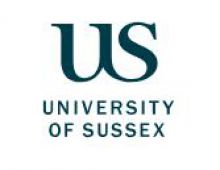New guidelines on setting UK vice-chancellors’ pay are set to be debated amid warnings that the continuing furore over remuneration is undermining universities’ ability to fight their corner on key issues such as Brexit.
Jo Johnson, the universities minister, held crunch talks on 13 December with sector leaders including Janet Beer, the president of Universities UK, and Sir Anton Muscatelli, the chair of the Russell Group, after another week of damaging headlines.
Several former vice-chancellors have broken rank to criticise incumbents for drawing salaries that are “much too high” and for relying on “spurious” comparisons – to industry chief executives, or to international higher education leaders – to inflate their pay. But, speaking to Times Higher Education, one serving sector leader maintained that the row would “blow over” and was being driven by “journalists and politicians”.
THE understands that draft guidance on executive pay is due to be published by the Committee of University Chairs early next month and is likely to recommend that vice-chancellors step down from institutional remuneration committees that set their salaries, and that chairs of university governing bodies step back from decisions on vice-chancellors’ pay.
The guidance is also expected to recommend that these panels publish a comparison of how a vice-chancellor’s salary compares with the average earnings of the wider workforce, and that this “pay multiple” be used as a key factor in decisions on executive remuneration.
The urgency of the situation was underlined last week when THE revealed that Christina Slade, the former vice-chancellor of Bath Spa University, was paid £808,000 in her final year in the job. Professor Slade’s pay package for 2016-17 included £429,000 as “compensation for loss of office” on top of a £250,000 salary and other benefits, according to published accounts.
THE also revealed that Michael Farthing, the former vice-chancellor of the University of Sussex, received a payment of £230,000 “in lieu of notice” when he stepped down in August 2016.
Among the former vice-chancellors to criticise current levels of executive pay was Peter Knight, who led the University of Central England (now Birmingham City University) between 1985 and 2007. In evidence to the House of Commons Education Committee, Dr Knight says that recent increases are “difficult to justify and have caused significant damage to the reputation of universities”.
Dr Knight says that remuneration committees’ use of data from comparable institutions in decisions on vice-chancellors’ pay was “reasonable” in principle, but, because members “have pride in their university, they usually decide to set pay above average, often close to the upper quartile”.
“It is mathematically inevitable that if all or even most remuneration committees decide to pay at the upper quartile then when that new pay level is fed into the comparison pay for the next university to undertake the exercise it will increase the average pay,” Dr Knight writes. “Over a period of three or four years the upper quartile becomes the new average and the cycle of inflation in senior pay continues inexorably upward.”
Another former vice-chancellor, who asked not to be named, said that senior salaries were “much too high”.
“It sends completely the wrong message to their own staff, and undermines their credibility when it comes to standing up for universities,” the former vice-chancellor told THE. “The standard justifications – that universities are competing in a global market (very few are), that they are chief executives of complex businesses (so are chief executives of NHS trusts, and they don’t get paid as much), [or that] they are like Premier League footballers (no comment) – are spurious.”
But Nick Petford, vice-chancellor of the University of Northampton, told THE that the row would “blow over” and warned universities against becoming obsessed with the issue.
“The danger for universities [of getting] embroiled in trying to defend and support and argue with journalists and politicians who are driving this, not the general public, is that it will detract from the great successes that UK universities actually are and the opportunities and the empowerment they provide for communities and the economy,” he said.
Professor Petford said that it was “absolutely not a crisis” but instead an “opportunity” to look at governance.
After a consultation in the new year, it is hoped that a final version of the CUC guidance will be published in May, allowing institutions to take note of it for their 2018-19 pay awards.
John Rushforth, the committee’s executive secretary, said that governing bodies “recognise the need to balance the need to recruit and retain staff who operate in a global market with the need to demonstrate that we deliver value for money”.
“We are hopeful that the code will give sufficient guidance to allow institutions to provide greater transparency and to deliver greater understanding of why salaries that are paid are paid, and to get institutions to look at how the pay of the head of the institution relates to the pay of the rest of their workforce; we are certainly exploring pay multiples as a way of doing that,” he said.
Nick Hillman, director of the Higher Education Policy Institute, argued that “robust” guidance from the CUC would help to resolve the issue, but added that there were “two big caveats”.
“First, any issue affecting people’s terms and conditions is not going to be resolved overnight because contractual arrangements have to run their course. Second, it is important that the sector rebuts the accusation that all high pay is unjustified,” he said. “A university leader who leads from the front, pushes their university up the rankings and staves off financial problems at a time of excessive turbulence should be well rewarded for it.”
Speaking to THE ahead of his meeting with sector leaders, Mr Johnson, the minister, said that he did not expect that “we will be seeing the same increases that we’ve seen in recent months come to light from historic decisions” emerging now in published accounts.
“I would be amazed if there were a remuneration committee out there that really felt it was sensible to announce significant pay increases in this climate,” he said.
Register to continue
Why register?
- Registration is free and only takes a moment
- Once registered, you can read 3 articles a month
- Sign up for our newsletter
Subscribe
Or subscribe for unlimited access to:
- Unlimited access to news, views, insights & reviews
- Digital editions
- Digital access to THE’s university and college rankings analysis
Already registered or a current subscriber?










